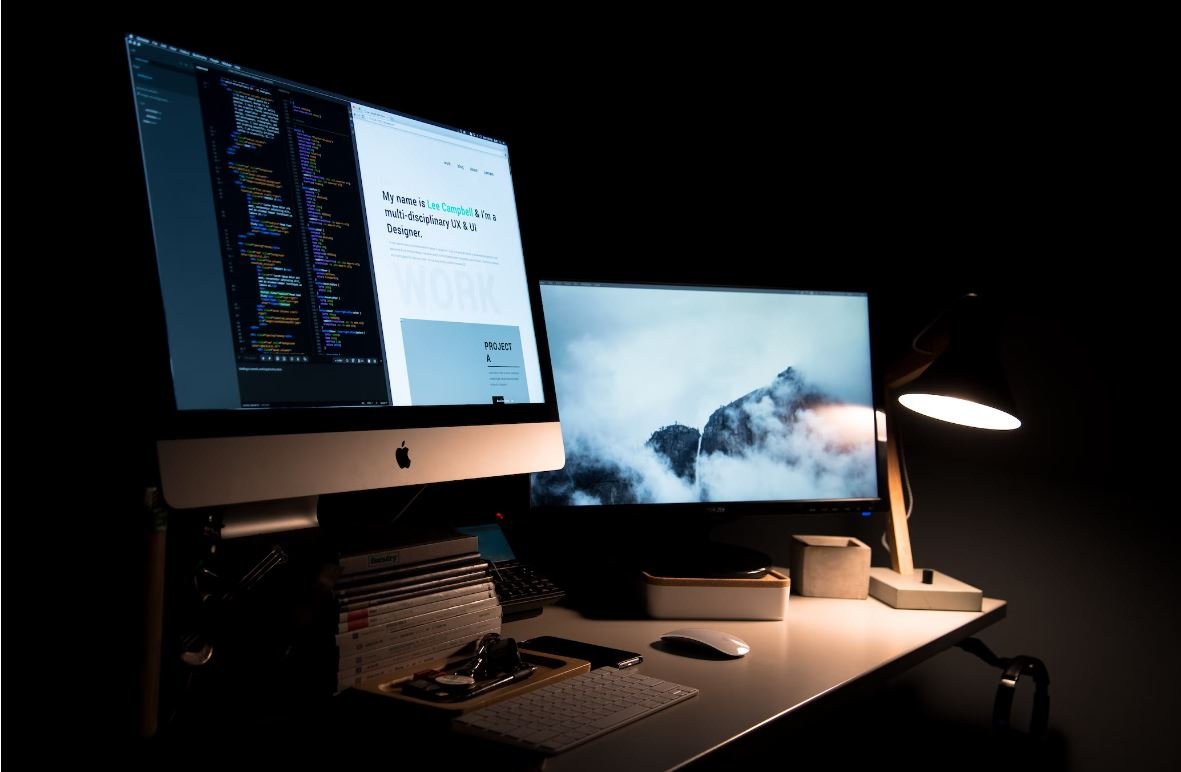Where to Record Podcast
In the digital age, podcasting has become a popular medium for spreading ideas, entertainment, and information. Whether you’re a seasoned podcaster or just starting out, one key decision you’ll need to make is where to record your podcast. This article provides valuable insights and options for finding the perfect recording location.
Key Takeaways
- Choosing the right recording location is crucial for podcast quality.
- Consider ambient noise, acoustics, and soundproofing when selecting a space.
- Home studios, professional studios, and remote options all have their pros and cons.
- Evaluate your budget, equipment needs, and convenience before making a decision.
When it comes to podcasting, **location** matters. The right space can greatly enhance your audio quality and overall listener experience. **Ambient noise** is an important factor to consider. Avoid noisy environments with lots of disruptions. *Soundproofing a room can help minimize unwanted disturbances and ensure a clean recording.* Acoustics also play a role, so rooms with softer surfaces like carpeting or curtains can help reduce echo and improve sound quality.
Now that you understand the importance of the location, let’s explore some options:
1. Home Studios
Creating a home studio is a popular choice for many podcasters. It offers convenience, affordability, and flexibility. **Choose a quiet room** away from main household activity to reduce background noise. *You can often repurpose an existing space in your home with minimal adjustments.* Consider investing in acoustic treatment like foam panels or portable sound booths to improve sound quality. Ensure your recording equipment is set up properly, and you’re ready to start podcasting from the comfort of your own home.
2. Professional Studios
If you’re looking for top-notch quality and have a budget to spare, **professional studios** are a great option. These studios are specifically designed for audio recording and ensure superb acoustics and equipment. *Working in a professional environment can boost your confidence and provide access to industry-standard tools.* However, it may come at a higher cost and require scheduling appointments, making it less flexible than a home studio. Research and visit different studios in your area to find the one that meets your requirements.
3. Remote Recording
With technological advancements, podcasters can now record remotely, even if hosts are in different locations. **Remote recording options** like Skype or Zoom allow you to collaborate with others and record high-quality audio from the comfort of your own space. *This flexibility can simplify scheduling and widen your guest pool.* However, remote recording requires a stable internet connection and good-quality microphones on both ends to ensure clear audio. Choose a quiet room with minimal background distractions to achieve optimal quality.
Tables
| Pros of Home Studios | Cons of Home Studios |
|---|---|
| – Convenience and affordability – Flexibility in recording schedules – Comfort of home environment |
– Potential background noise – Limited acoustic control without modifications – May lack professional-grade equipment |
| Pros of Professional Studios | Cons of Professional Studios |
|---|---|
| – Superior audio quality and acoustics – Access to professional-grade equipment – Controlled recording environment |
– Higher cost and scheduling limitations – Lack of flexibility in choosing location – Potential travel time to reach the studio |
| Pros of Remote Recording | Cons of Remote Recording |
|---|---|
| – Flexibility in location and scheduling – Ability to collaborate with remote guests – No need for travel or studio rental |
– Dependence on stable internet connection – Potential audio quality issues – Limitations of recording equipment at each location |
Regardless of the location you choose, always prioritize the quality of your content and aim for a seamless recording experience. Remember, **finding the right space** is an important step towards creating an engaging podcast, so weigh your options, evaluate your needs, and find the perfect location to bring your podcast to life.

Common Misconceptions
Misconception 1: A Professional Recording Studio is Necessary
Many people believe that in order to record a podcast, they need access to a professional recording studio. However, this is a common misconception. While a studio can provide high-quality sound and equipment, it is not a requirement for a successful podcast.
- You can record a podcast using a simple USB microphone and your computer.
- Comfortable rooms in your own home or office can provide sufficient audio quality.
- You can improve the sound quality by utilizing soundproofing techniques such as using blankets or foam panels.
Misconception 2: Expensive Equipment is Essential
Another misconception is that expensive and professional equipment is necessary to record a podcast. While high-end gear can enhance the audio quality, it is not a prerequisite for starting a podcast.
- Basic audio editing software, such as Audacity, is available for free.
- USB microphones or affordable entry-level XLR microphones can provide decent sound quality.
- Headphones and a pop filter are essential accessories that can be purchased at reasonable prices.
Misconception 3: Podcast Hosting Platforms are Costly
Some people assume that hosting a podcast on a dedicated podcast hosting platform is expensive. However, this is not necessarily true. While there are paid hosting services available, there are also affordable or even free options that can be sufficient for most podcasters.
- Platforms like Anchor offer free podcast hosting and distribution services.
- Libsyn and Podbean are popular hosting providers that offer different pricing plans catering to various podcasting needs and budgets.
- YouTube can be used as a platform to host and share your podcast for free.
Misconception 4: Podcasts Must Have a Specific Length
Many people believe that podcasts must adhere to a specific length, such as 30 minutes or an hour. However, this is not true. Podcasts can vary in length depending on the content and the preferences of the creator.
- Some podcasts thrive with shorter, bite-sized episodes, perfect for quick commutes or breaks.
- Others excel with longer episodes that allow for in-depth discussions or interviews.
- The ideal length of a podcast episode is subjective and can vary based on the topic and target audience.
Misconception 5: Podcasts Need to be Professionally Edited
There is a notion that podcasts need to be professionally edited to sound polished and flawless. While editing can enhance the overall quality, it is not essential for every podcast.
- A conversational format can lend authenticity and charm to a podcast.
- Basic editing skills, like trimming silence and eliminating major mistakes, can be learned quickly and easily.
- Minimal editing can help capture the natural flow and spontaneity of the conversation.

Podcast Listener Demographics
Before deciding where to record your podcast, it’s important to understand your target audience. Here are some demographics of podcast listeners:
| Age Group | Percentage |
|---|---|
| 18-24 | 20% |
| 25-34 | 35% |
| 35-44 | 25% |
| 45+ | 20% |
Popular Podcast Genres
Knowing the popular genres can help you determine the category of your podcast:
| Genre | Percentage |
|---|---|
| True Crime | 30% |
| News/Politics | 20% |
| Comedy | 15% |
| Education | 10% |
| Business | 25% |
Preferred Podcast Listening Devices
Consider the devices your audience uses to consume podcasts:
| Device | Percentage |
|---|---|
| Smartphone | 70% |
| Computer/Laptop | 15% |
| Tablet | 10% |
| Smart Speaker | 5% |
Most Listened to Length of Podcasts
Consider the preferred length of podcasts to meet listener expectations:
| Length | Percentage |
|---|---|
| 10-20 minutes | 30% |
| 20-40 minutes | 40% |
| 40-60 minutes | 20% |
| 60+ minutes | 10% |
Podcast Listener Gender Distribution
Understanding the gender distribution can help shape your content and marketing efforts:
| Gender | Percentage |
|---|---|
| Male | 60% |
| Female | 40% |
Geographical Distribution of Podcast Listeners
Consider the potential reach of your podcast in different geographical regions:
| Region | Percentage |
|---|---|
| North America | 50% |
| Europe | 30% |
| Asia | 10% |
| Other | 10% |
Podcast Sponsorship Revenue
Sponsorship is a potential revenue stream for podcasters. Here’s the average sponsorship revenue:
| Podcast Size | Average Revenue |
|---|---|
| Small (1,000-10,000 listens) | $500/month |
| Medium (10,000-50,000 listens) | $2,000/month |
| Large (50,000+ listens) | $10,000/month |
Podcast Recording Platforms
Consider the popular recording platforms used by podcasters:
| Platform | Percentage |
|---|---|
| Audacity | 40% |
| GarageBand | 30% |
| Adobe Audition | 20% |
| Other | 10% |
Top Podcast Hosting Platforms
It’s essential to choose a reliable podcast hosting platform. Here are some popular options:
| Platform | Percentage |
|---|---|
| Spotify | 40% |
| Apple Podcasts | 35% |
| Google Podcasts | 15% |
| Other | 10% |
Conclusion
In today’s booming podcast industry, understanding podcast listener demographics, preferred genres, devices, episode lengths, and more is crucial for success. By carefully selecting recording platforms and hosting providers, podcasters can leverage these insights to reach their desired audience. Whether you are passionate about true crime or want to dive into business discussions, catering to your audience’s preferences will help your podcast stand out and flourish.
Frequently Asked Questions
How do I decide on a podcast title?
How do I decide on a podcast title?
Can I change the podcast title after launching?
Can I change the podcast title after launching?
What are some podcast title ideas?
What are some podcast title ideas?
Is it important to include keywords in the podcast title?
Is it important to include keywords in the podcast title?
Should I consider the target audience when choosing a podcast title?
Should I consider the target audience when choosing a podcast title?
What are some common mistakes to avoid when selecting a podcast title?
What are some common mistakes to avoid when selecting a podcast title?
How can I ensure my podcast title is unique?
How can I ensure my podcast title is unique?
Does my podcast title affect SEO?
Does my podcast title affect SEO?
Is it necessary to have a subtitle in addition to the podcast title?
Is it necessary to have a subtitle in addition to the podcast title?
How often should I evaluate my podcast title?
How often should I evaluate my podcast title?


Leave a Reply